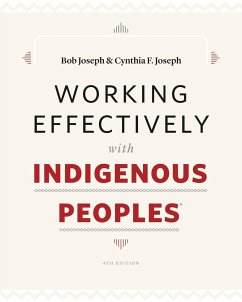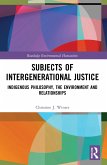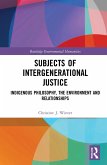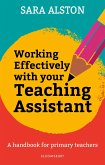"Having recently completed training with Indigenous Corporate Training, I'm pleased to see the materials and supporting information book updated to address the evolving nature of relationships, modern treaties, the evolving legal climate, and shifts in engagement and consultation activities when working with First Nations. Having taken this course years ago, the new material is valuable in understanding the evolution of First Nations' application of rights and title cases across Canada's legal system." -Christine Boehringer Whether you're just starting out or want to increase your knowledge, Working Effectively with Indigenous Peoples® is written to support people in their Indigenous relations endeavours. The fourth edition has additional content and a fresh look inside and out. This book will provide readers with opportunities to: See both sides of the debate on Indigenous Peoples' rights, title and treaties nderstand the difference between "Indigenous" and "Aboriginal" Sift through the rhetoric to find creative solutions to workplace challenges Become familiar with terminology and interpersonal communications by learning what to say and what not to say to be respectful Learn business reasons for governments and organizations to work respectfully and effectively with Indigenous Peoples Explore individual and organizational strategies for Working Effectively with Indigenous Peoples® Learn critical legal and practical information on consultation and accommodation Bob Joseph, founder of Indigenous Corporate Training Inc., has provided training on Indigenous and Aboriginal relations since 1994. As a certified Master Trainer, Bob has assisted both individuals and organizations in building Indigenous or Aboriginal relations. His Canadian clients include all levels of government, Fortune 500 companies, financial institutions, including the World Bank, small and medium-sized corporate enterprises, and Indigenous peoples. Bob has worked as an associate professor at Royal Roads University and has contributed to a number of resources relating to working with Aboriginal or Indigenous Peoples. He also manages a blog called Working Effectively with Indigenous Peoples®. Jospeh is an Indigenous person, or more specifically a Status Indian, and is a member of the Gwawaenuk Nation. He comes from a proud potlatch family and is an initiated member of the Hamatsa Society. As the son of a hereditary chief, he will one day, in accordance with strict cultural laws, become a hereditary chief. Cynthia F. Joseph is an integral part of the Indigenous Corporate Training Inc. team. She is co-author of our books and is the main developer of the on-line training programs. Cindy received her Bachelor of Laws degree from the University of British Columbia in 1990. While maintaining a legal practice Cindy began using her experiences as a faculty member at Capilano University Paralegal Program. The combination of her legal degree and her teaching experience have been invaluable in developing the online training programs that we offer. Cindy's research skills and educational background ensure that our Working Effectively with Indigenous Peoples® books and training manuals are up to date and reliable.
Bitte wählen Sie Ihr Anliegen aus.
Rechnungen
Retourenschein anfordern
Bestellstatus
Storno









